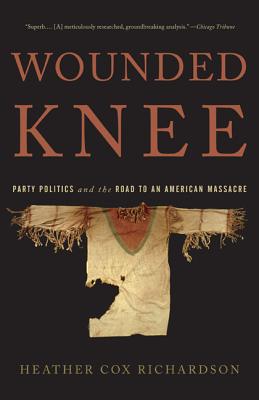American History Chat - April 30, 2020
Link to video on Facebook
Link to transcript

In today's chat, HCR discussed why the US didn't become an oligarchy in the late 19th and early 20th century, beginning with the role of Theodore Roosevelt, briefly laying out the accomplishments of the progressive era, and then finishing by spending considerable time on the continuing development of the ideal of the individual, often at the expense of some who couldn't be counted as 'individuals' because of race or ethnic origin, as institutionalized policies of exclusion peaked in some ways during this period. How did the progressive era emerge, and what happened on the edges, as statues, books, histories, and hollywood movies celebrated a particular form of individualism.
Links (underlined) related to topics covered in the chat
Roosevelt’s West
Topics in Chronicling America - The McKinley Assassination
Teddy Roosevelt’s attack on excessive concentration of wealth
JP Morgan and Roosevelt
In this episode of KPFA's "Letters and Politics", investigative reporter Susan Berfield discusses her book The Hour of Fate: Theodore Roosevelt, J.P. Morgan, and the Battle to Transform American Capitalism. At the end of the 19th century, arguably the most important capitalist in America was J. P. Morgan, who was rich enough to bail out the US government at one point. Morgan was able to take advantage of economic depressions that occurred in the US in the 1870s and 1890s by acquiring distressed railroad and other companies (a process that became known as 'Morganization'). However, Morgan wasn't the only capitalist who was able to use his money and connections to consolidate his wealth. During this period, many others did it, and this led to the rise of inequality, of populist movements and antitrust legislation. An intellectual tradition, exemplified by Henry George's 'Progress and Poverty'. During this period, the thinking of Theodore Roosevelt evolved, both as a result of personal tragedies as well as through his experience after meeting figures such as Samuel Gompers. When Roosevelt became President after the assassination of William McKinley at the Pan American Exposition in 1901, he made it a priority to address the rising power of big business.
May 2, 1913: President Theodore Roosevelt Speaks Out for Suffrage
American ideal: Theodore Roosevelt and the redefinition of American individualism
Confederate Statues Were Built To Further A 'White Supremacist Future'
Why the Solid South (online book)
How white Americans used lynchings to terrorize and control black people
THE HISTORY OF LYNCHING AND AFRICAN AMERICAN VOTING RIGHTS
Mississippi: Black voters sue over election law rooted in state’s racist past
Nov. 10, 1898: Wilmington Massacre
The White Man's Declaration of Independence
The Leopard's Spots. A Romance of the White Man's Burden—1865-1900 (summary)
Killers of the Flower Moon author interview
Red Summer In Chicago: 100 Years After The Race Riots
Palmer Raids in the Library of Congress
THE BUREAU OF RECLAMATION
A Battle To Wash Away A Fountain's Controversial Namesake
Why FDR Didn’t Support Eleanor Roosevelt’s Anti-Lynching Campaign
Historians' interpretations of the reconstruction period in American history
This doctoral thesis written in 1961 takes a quite favorable view of the Dunning school
The Undoing of Reconstruction
The historian who gave his name to the Dunning School, a group of scholars who decried Reconstruction, explained his objections to the United States government’s effort to establish racial equality in the post-war South.
W. E. B. Du Bois’s “Black Reconstruction” and the New (Marxist) Historiography
W. E. B. Du Bois gave perhaps the definitive answer to the Dunning school in "Black Reconstruction" (available online). This article discusses this.
Ulrich Bonnell Phillips (1877-1934)
a positive review of Bower's book "Tragic Era".
How I Bought Into Gone with the Wind’s Mythology of Whiteness
Learning from Laura Ingalls Wilder
Lonely America
In an era of hyper-individualism, we should rekindle the bonds of community
Stagecoach: Is There Such A Thing as an Anti-Western?





